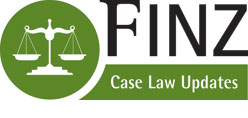|
4516 An insurer that defended the insured and paid the policy limit after refusing a reasonable settlement offer within policy limits resulting in a judgment against the insured in excess of the policy limit is not liable for breach of an express provision of the policy; the insurer may be liable for breach of the implied covenant of good faith and fair dealing, which gives rise to both a tort action and a contract action; in the contract action, the excess for which the insured was liable is recoverable as damages since in the ordinary course of events it was a foreseeable result of the insurer's breach; damages available in the tort action may include emotional distress suffered by the insured as a result of the insurer's conduct; both actions accrue on entry of the excess judgment, but the limitations period is tolled during an appeal of the judgment; an assignment of the insured's right to recover economic losses is valid and entitles the assignee to sue to enforce the assigned right, so long as the assignment was made before the statute of limitations ran.CitationARCHDALE v AIG (Bad Faith) 154 CA4 449 [See: CivC 3300; CCP 337, 339; Comunale v Traders 50 C2 654; Crisci v Security 66 C2 425; Foley v Interactive 47 C3 654; Brandt v Superior Court 37 C3 813; Lantzy v Centex 31 C4 363, T/AT 9/03]
|
|



